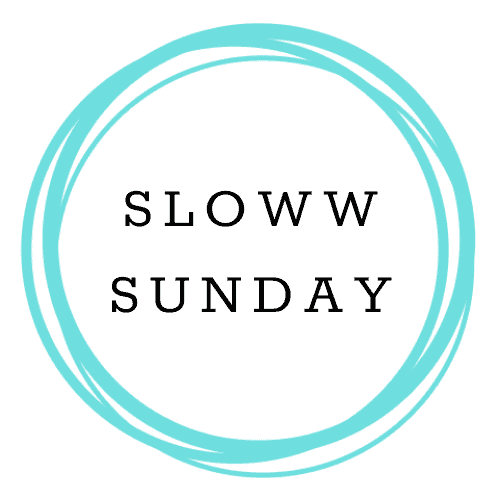Sign up to get the Sloww Sunday newsletter via email for free:👇

Sloww Sunday Newsletter 066 (June 27, 2021) — Being a Generalist, Lifelong Learning, Ongoing Evolution, & More
Hi friends,
Sloww Sunday is a free newsletter delivering the latest from Sloww along with the most interesting modern knowledge and timeless wisdom I discovered last week.
To respect your time and attention, every newsletter can be read in under 5 minutes. If you enjoy it, please take 5 seconds to share it with someone who could benefit from it. Happy learning!
Sloww Stuff
New Post (Public):
🆕 10 Insights to Inspire Your Inner Generalist from “Range” by David Epstein (Book Summary)
There’s an ongoing debate about whether we need more specialists or more generalists in the world. In Range: Why Generalists Triumph in a Specialized World, author David Epstein does some myth-busting and makes a case for the generalists out there—but he acknowledges that we need both generalists and specialists. While the book utilizes a wide variety of storytelling, this summary gives you all the key takeaways.
In Case You Missed It (Premium):
🔒 How to Build Effective Habits with “Atomic Habits” by James Clear (+ Infographics)
Why has Atomic Habits become such a bestselling success the last few years? Author James Clear says he believes it’s because the book is “one of the first models of human behavior to accurately account for both the influence of external stimuli and internal emotions on our habits.” This Premium post is my attempt to turn Atomic Habits into a practical action plan. If James Clear claims the book is “an operating manual,” then this Premium post is your “quick start guide.” Enjoy!
Modern Knowledge
🌎 Why Specializing Early Doesn’t Always Mean Career Success
(14 mins | YouTube)
If you’re looking for a video introduction to David Epstein, author of Range, this TED Talk gives you the gist of the book in a fraction of the time.
“The question I set out to explore was how to capture and cultivate the power of breadth, diverse experience, and interdisciplinary exploration, within systems that increasingly demand hyper-specialization, and would have you decide what you should be before first figuring out who you are.” — David Epstein
Timeless Wisdom
📚 The Idea of The Great Ideas
(52 mins | YouTube)
Mortimer Adler was a philosopher, educator, and encyclopedist. Today, he’s often referenced as the author of the popular classic, How to Read a Book (which I just finished—summary coming next week). Adler was a big believer in lifelong learning. School isn’t where you get educated—instead, education takes place in adult life after right maturity.
Bonus: I tweeted an amazing photo of Adler sorting info into ideas. This is what it looked like to conduct pre-digital and pre-internet curation, synthesis, and knowledge integration.
Interview Highlights:
- What is a good teacher? “A person who is dedicated to continued general learning. The best teacher is the teacher who—in the course of teaching—is learning.”
- Who is the greatest teacher? “Socrates … The Socratic conception of teaching … Anything that can be learned can be discovered by the learner without the aid of a teacher … The active learner is the student.”
- How do you teach someone to read well? “Make them struggle with texts that are very difficult and over their head.”
- What’s the greatest unread book? “Aristotle’s Ethics … The only sound, pragmatic, and undogmatic book in moral philosophy ever written.”
- What are the Great Ideas? “The major areas of inquiry that the human mind has undertaken (in Western thought).” Here’s a list of the 103 Great Ideas.
“In the case of good books, the point is not to see how many of them you can get through, but how many can get through to you.” — Mortimer Adler
Mind Expanding
🤯 The Longest-Running Evolution Experiment
(17 mins | YouTube)
This is so wild that I watched it twice. Professor Richard Lenski and his team have been intentionally evolving the same bacteria in a lab environment over the last 30+ years. What does that mean more precisely? They’ve been evolving better E. coli for over 70,000 generations. The results are expected in some ways, and extraordinary in others.
If you want to go even deeper, here’s the “Long-Term Evolution Experiment” website.
“It’s one of the most direct demonstrations of Darwinian adaptation by natural selection you can imagine.” — Richard Lenski
💭 Deep Quote
“Virtually every good thing in my life I can trace back to a misfortune, so my feeling is you don’t know what’s good and what’s bad when things happen. You do not know. You have to wait to find out.” — Sebastian Junger
Bonus: “If I step onto my misfortune, I stand higher.” — Friedrich Hölderlin
Sharing: If you enjoyed this issue, please help grow Sloww by sending this post to some friends or family who could benefit from it or sharing it on your personal social media profiles. Anyone can subscribe for free here.
Support: Sloww is a one-human labor of love. If you’re interested in supporting my work, there are several financial and non-financial ways to support.
Feedback: Have something you want to say, or just want to say hi? It’s always much appreciated. Just send me an email or reach out socially.
Have a resilient week!
Kyle Kowalski
Solopreneur & Synthesizer, Sloww






Leave a Reply